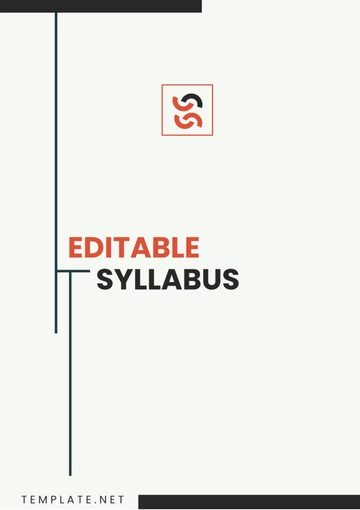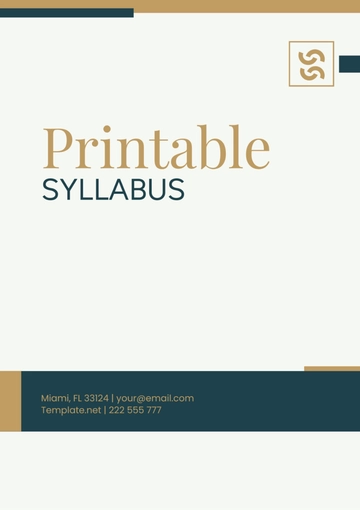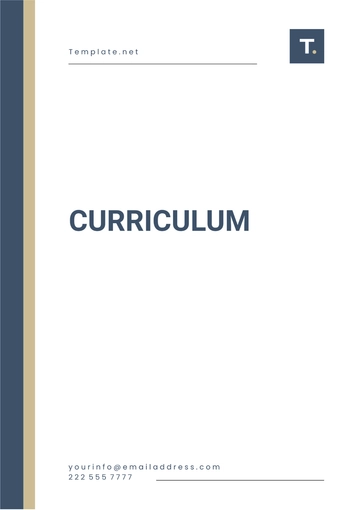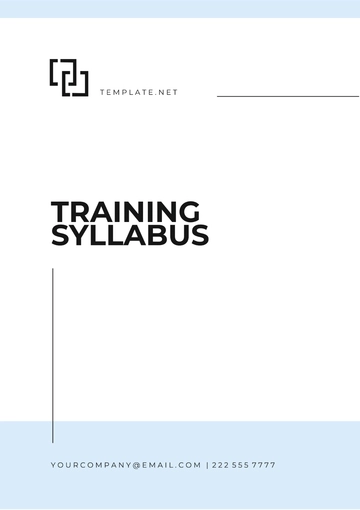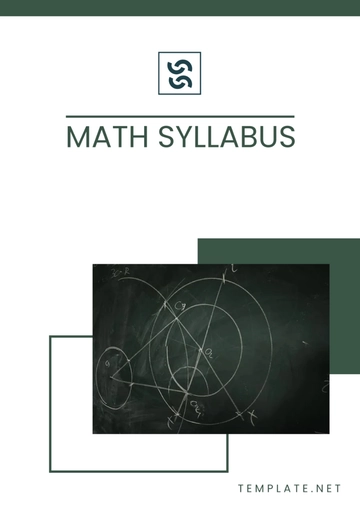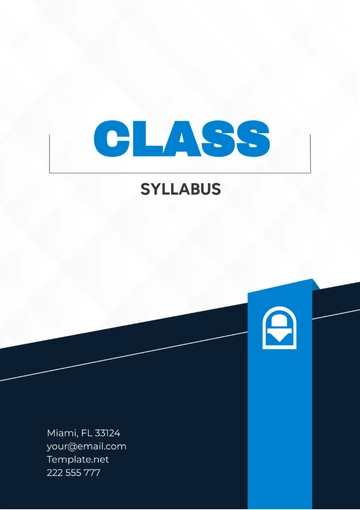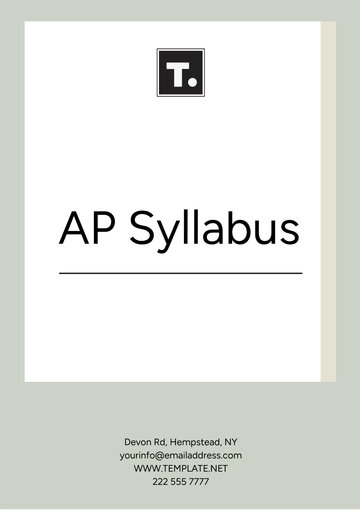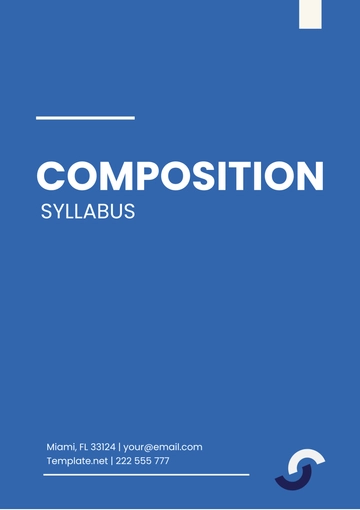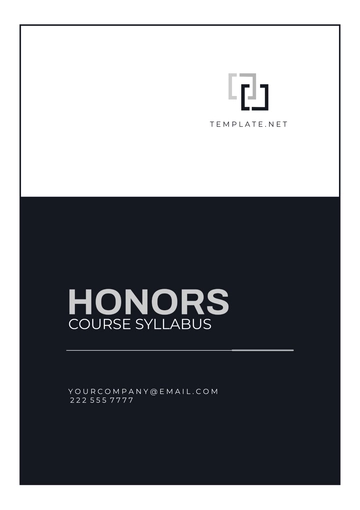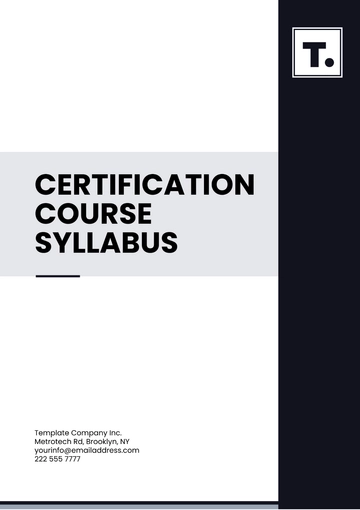Free High School Chemistry Syllabus
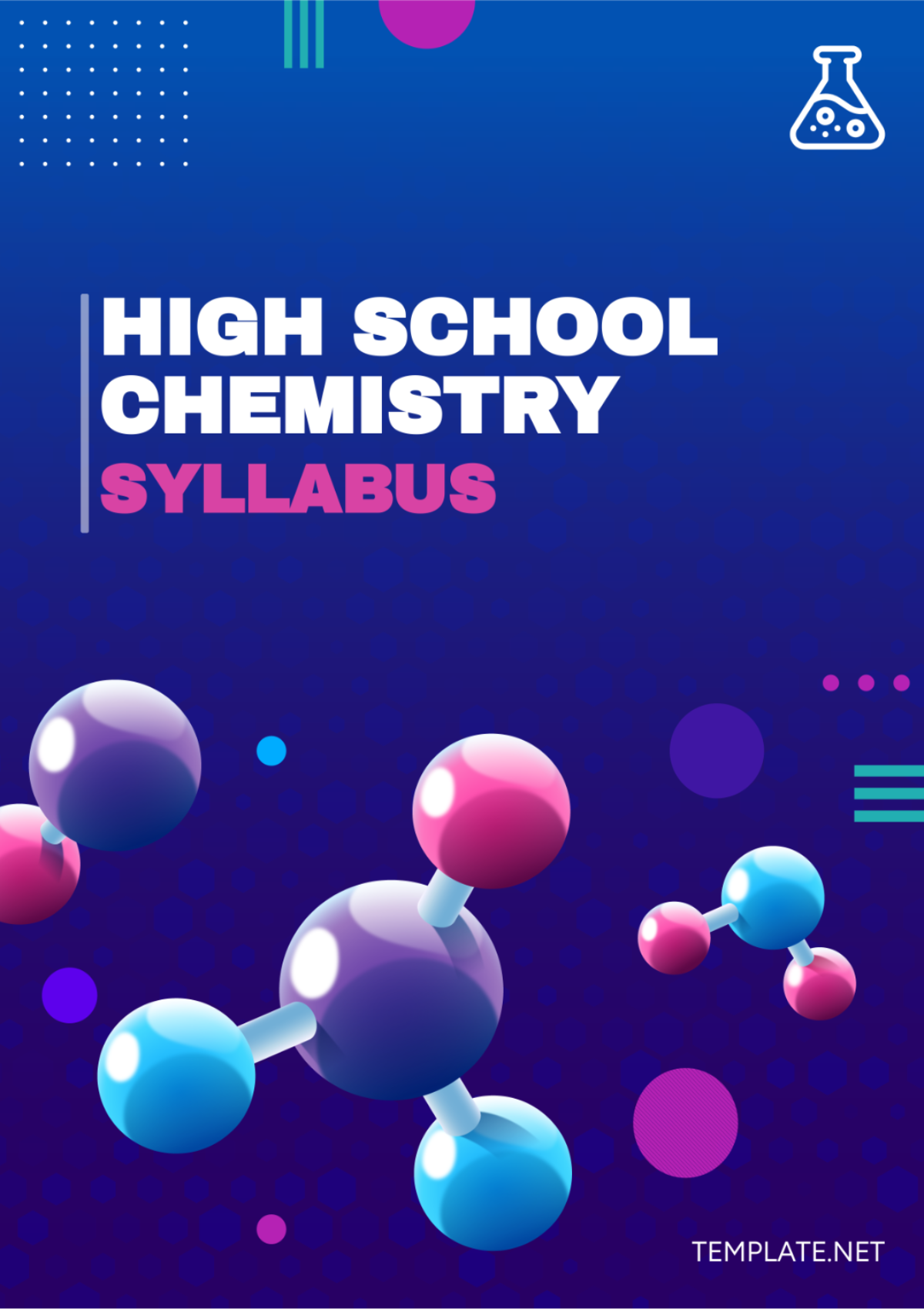
Chemistry Course
Course Title | [COURSE TITLE] |
Course Code | [COURSE CODE] |
Class Location | [CLASS LOCATION] |
Class Time | [CLASS TIME] |
School Name | [SCHOOL NAME] |
Class Duration | [DATE] - [DATE] |
1. Course Description
This course is designed to introduce high school students to the fundamental concepts of Chemistry. Through interactive lectures, readings, and laboratory work, students will expand their understanding of the composition, properties, and changes of matter and apply them to real-world situations.
2. Instructor Information
Name: [Your Name]
Email: [Your Email]
Office Hours: [Days and Times]
Classroom: [Room Number]
3. Learning Objectives
Understand and apply foundational chemistry concepts and terminology.
Relate chemical reactions to everyday life.
Develop problem-solving skills in a chemical context.
Appreciate the relevance and power of chemistry as a tool in understanding the world.
Conduct basic chemistry experiments with safety consciousness.
4. Course Schedule
Week | Topic | Reading Assignment |
|---|---|---|
1 | Introduction to Chemistry | Chapter 1 |
2 | Atomic Structure & Periodic Table | Chapter 2 & 3 |
3 | Chemical Bonding | Chapter 4 |
4 | Chemical Reactions | Chapter 5 |
5 | Stoichiometry | Chapter 6 |
6 | Gases and Their Properties | Chapter 7 |
7 | Solutions and Their Behavior | Chapter 8 |
8 | Acids and Bases | Chapter 9 |
9 | Chemical Kinetics | Chapter 10 |
10 | Chemical Equilibrium | Chapter 11 |
5. Laboratory Requirements
Lab Coat
Safety Goggles
Closed-toe Shoes
Laboratory Notebook
6. Required Reading and Materials
"High School Chemistry Textbook", Publisher Name
Scientific Calculator
Laboratory Safety Equipment (Goggles, Lab Coat, etc.)
Notebook for Lab Notes
Access to a Computer for Online Components
7. Assignments and Assessments
Weekly Quizzes: Multiple choice quizzes assessing understanding of weekly topics.
Experiments: Hands-on lab experiments applying chemistry concepts.
Midterm Exam: Cumulative test of knowledge gained in the first half of the semester.
Final Project: Students will present a chemical reaction, explaining the process and relevance.
Final Exam: Cumulative test of knowledge gained throughout the semester.
8. Course Policy
Respect for all students and instructor in class.
Active participation in lectures and labs.
Absences only excused for illness or emergency. Inform the instructor in advance.
All assignments must be submitted by the due date. Late submissions will lose points.
Academic integrity must be maintained. Cheating or plagiarism will result in a fail.
9. Grading Policy
Exams (3): 45%
Laboratory Reports: 20%
Homework Assignments: 15%
Class Participation: 10%
Final Project: 10%
Disclaimer
The syllabus for this course should not be viewed as unalterable or set in stone. It may undergo adjustments and changes as and when required, depending on the progression of the course and other external factors. If such changes occur or modifications are made to the syllabus, a prior announcement will be made.
This is to ensure that students are given sufficient time to adjust their study schedules and anticipate any potential shift in their course preparation.
Therefore, it is crucially important that every student regularly reviews the course schedule and requirements. This is to ensure that they are consistently informed and updated on any changes in line with the advancements of the class. So, each student is always expected to carefully monitor the course progression and stay abreast of any alterations in the syllabus, thus enhancing the overall learning experience.
- 100% Customizable, free editor
- Access 1 Million+ Templates, photo’s & graphics
- Download or share as a template
- Click and replace photos, graphics, text, backgrounds
- Resize, crop, AI write & more
- Access advanced editor
Introducing the High School Chemistry Syllabus Template from Template.net! Crafted for educators, it's an editable and customizable tool, tailored to streamline lesson planning. Seamlessly adjust content in our Ai Editor Tool to suit your curriculum needs. Elevate your teaching experience with this versatile resource. Get started today!

